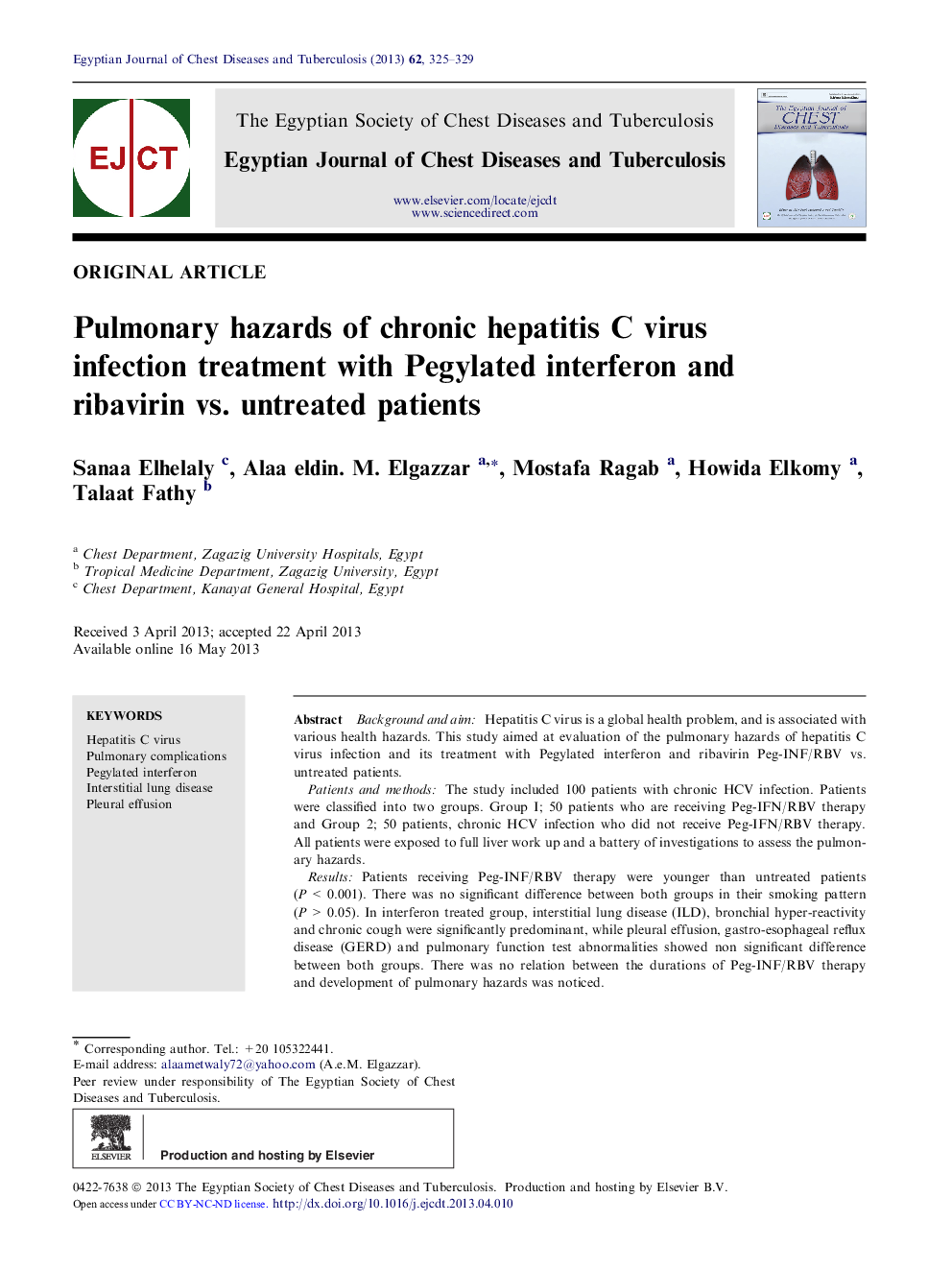| Article ID | Journal | Published Year | Pages | File Type |
|---|---|---|---|---|
| 3400066 | Egyptian Journal of Chest Diseases and Tuberculosis | 2013 | 5 Pages |
Background and aimHepatitis C virus is a global health problem, and is associated with various health hazards. This study aimed at evaluation of the pulmonary hazards of hepatitis C virus infection and its treatment with Pegylated interferon and ribavirin Peg-INF/RBV vs. untreated patients.Patients and methodsThe study included 100 patients with chronic HCV infection. Patients were classified into two groups. Group I; 50 patients who are receiving Peg-IFN/RBV therapy and Group 2; 50 patients, chronic HCV infection who did not receive Peg-IFN/RBV therapy. All patients were exposed to full liver work up and a battery of investigations to assess the pulmonary hazards.ResultsPatients receiving Peg-INF/RBV therapy were younger than untreated patients (P < 0.001). There was no significant difference between both groups in their smoking pattern (P > 0.05). In interferon treated group, interstitial lung disease (ILD), bronchial hyper-reactivity and chronic cough were significantly predominant, while pleural effusion, gastro-esophageal reflux disease (GERD) and pulmonary function test abnormalities showed non significant difference between both groups. There was no relation between the durations of Peg-INF/RBV therapy and development of pulmonary hazards was noticed.ConclusionsTreatment of chronic HCV with Peg-INF could result in pulmonary complications; the most common was bronchial hyperreactivity, chronic cough, restrictive pulmonary dysfunction, unexplained dyspnea and ILD. While other complications such as pneumonia and pleural effusion were as common as in untreated patients.
